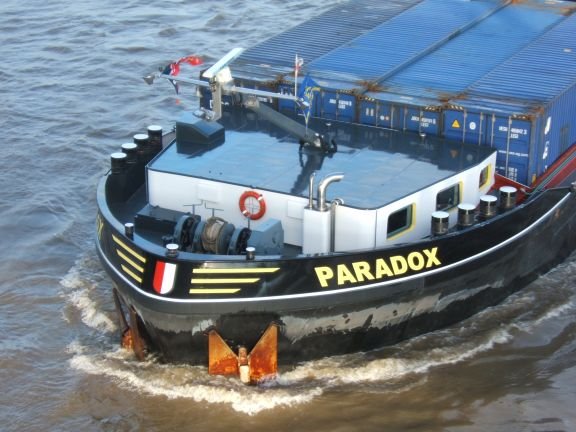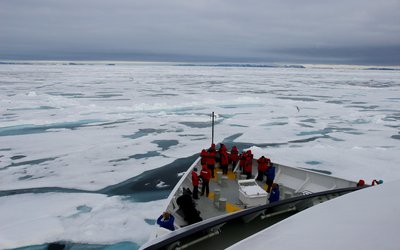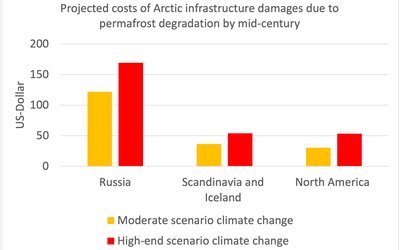Transport, infrastructure and building
Bulk cargo companies vulnerabilities at low water on the Rhine
January 21, 2014

Mass-cargo-affine companies are companies that depend on mass cargo, like coal fired power plants, chemical industry or steel industry. Traditionally they settle along river banks to be able to use inland navigation as a cheap and reliable way of transport. During low water periods however, the capacity of inland navigation vessels is reduced and therefore the transport amount is limited, while the transport demand stays on the same high level. This affects their security of supply.
The vulnerability of bulk cargo companies along the River Rhine to low water periods has been studied for the near future (2021–2050) and the distant future (2071–2100), and compared with the period 1961–1990. The future projections are based on results of a number of climate models and two IPCC SRES emissions scenarios (B1 and A1B).
A discrepancy between the transport amount and the transport demand may result in a deviation of optimal storage and may thus affect continuity of business processes. The projected deviation of optimal storage was largest in autumn: -1.5% (B1-scenario) to -6 % (A1B) for 2021–2050, and -8% (B1 scenario) to -15% (A1B) for 2071–2100.
Analysis of the inter-annual variability shows that, in individual years, individual companies may experience up to 18 (B1 scenario) or 45 days with empty storage toward the end of the century, most of them in a row in late summer and autumn. Also the number of years with days with empty storage increases. While till 2050 only one to two years per decade show days with empty storage, in the second half of the century on average at least every second year, shows days with empty storage.
In 2021–2050 2.5% and in 2071–2100 25% extra storage capacity is needed to compensate the impact of lower water-levels in autumn. Other ways to adapt are using smaller vessels and other modes of transport.
Source: Scholten et al., 2014. Climatic Change 122: 111–125.
Photo: Wilfried ten Brinke








